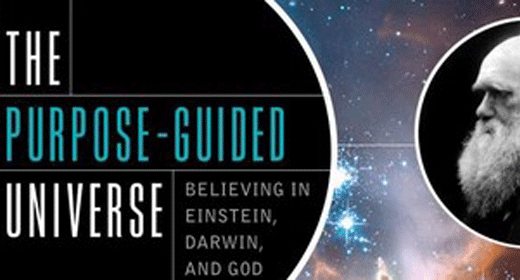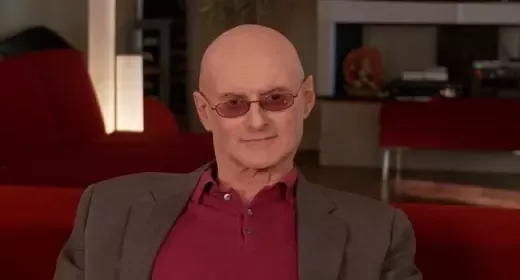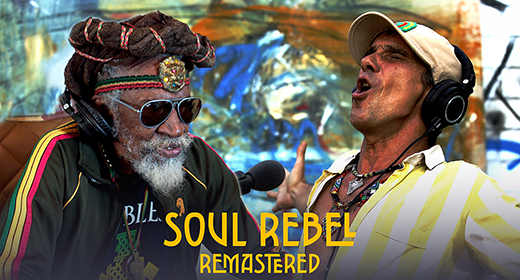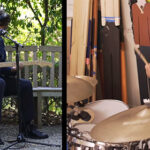Donna Quesada: I know that I am the trees and I am the river, and so our environment is sacred, and our world is beautiful and we’re able to save ourselves.
Ken Wilber: That’s right. By the way, all of the world’s major religions believe that. The Western mystics are frequently called Neoplatonic because they’re based on a very famous follower of Plato, who generally introduced the notion. You’ve probably heard of Plato’s Cave, where he said our ordinary way of thinking and our ordinary self is…we’re all prisoners trapped in a cave, and we’re shackled, so we can only see shadows on the wall of the cave thrown by the real sun, which is outside the cave. As long as we’re stuck in this cave, we’re stuck in a shadow self. We’re stuck in a shadow world. All we’re seeing are shadows. Plato said what we have to do is step outside the cave, look at the real sun, and get our real selves and our real reality…
About 600 years later, a gentleman named Plotinus wrote, focusing on just that part of Plato. He was the one that almost all mystics found profoundly absorbing and fascinating. Because he would just talk about what you have to do to get out of the cave. He also had a spectrum of consciousness with about eight or nine levels of development. All of these spectrums that the world’s spiritual systems came up with, they’re all the same. They all start out with five senses, then a lower mind, then a higher mind, then an integrated mind, then a transcendent transpersonal mind, and then a unified non-dual oneness mind. Plotinus had one of those and he had actual steps you could take to climb that ladder, also called Jacob’s Ladder. Because the Bible got some things correct in the midst of its gory mythic mythology.
First of all, most people in the west don’t even know that there’s such a thing as enlightenment or awakening or something like that. The only time the West had a hint of that was during the 60s, because in the 60s, two things happened. One, psychedelics hit America. LSD in particular, was a psychedelic known for inducing unity experiences. People were dropping acid and having their minds blown, which is exactly what was meant… is your crazy, everyday, logical mind was blown to pieces and what you were left with was the oneness of the entire world. That was one thing that happened. But the second equally important thing that happened was when Alan Watts, who was a fairly well-known writer at the time…
Donna: I always loved Alan Watts…
Ken: Yeah. He loved Krishnamurti and he loved Zen. He started writing about both of them, and so people learned…Americans in general learned that there was a word called satori, which meant enlightenment, awakening, unity, consciousness etcetera. For about a decade, most Americans had heard the word satori and they knew what it meant, vaguely. Very few of them would actually go out and have that experience, but several of them did. They especially did because in Japan where Zen Buddhism grew up, it was a real form of Buddhism, but it was created as it transmigrated through China and then into Korea, and then into Japan. In Japan, it became Zen Buddhism. When Zen, like many religions in the modern and postmodern world, started to sort of backslide a little bit. It was losing ground in terms of adherence or people that believed in it or practiced it, until they heard that America had gone nuts over Zen.
Then they all started doing Zen again. A lot of the really great Zen masters… I mean, these are really brilliant and aware individuals, they started coming over to America. I remember in the early 60s, because I started reading about Zen Buddhism, particularly a scholar called D.T. Suzuki, who had written books, like essays in Zen Buddhism, which was really a three volume set of books. Each book was about that thick.
Essays and Zen Buddhism was a book that was about that big and I read all of it. I just devoured it. I learned satori and Mu and Koan and all these extraordinary words. I started looking around for Zen masters in America. When I first started this in the early 60s, I found maybe 30 that were actual reels and masters that were in America and had fairly large followings.
By the end of the 60s I stopped counting them at around a hundred. They had really just poured into America and that really… It especially caught hold because of a psychedelic revolution. But then…
Donna: Did you have a rewarding experience during your time in Zen in search of teachers? Did you have a satori experience during the…
Ken: Did I have what?
Donna: A satori experience?
Ken: Oh yes. Basically.
Donna: Would you share that with us?
Ken: Yeah. The first one was almost a spontaneous experience. I was just in the garage and I was meditating. The way I got this meditation was… the way I would write Zen masters to ask them to be my master, was, I learned that the founder of Zen… a Master… the first Zen teacher, was a guy named Bodhidharma. Bodhidharma was the first of six major… Of course, at that time they were called patriarchs.
Donna: Patriarchs.
Ken: But nowadays they call them “masters” or teacher. But he was the first of six hugely successful Zen teachers. When I say Zen teacher, I mean each Zen master had maybe a hundred followers. But they passed it down to what became a very successful lineage. I learned that each of them, all six, starting with Bodhidharma, had handed his successor a book that explained what Zen was. A book called Laṅkāvatāra Sūtra. It’s a very profound Sutra.
Sutras, for people that don’t know, are simply the names of the primary teaching texts that were written by great Zen masters. We have the Sutra by Wei Lang, who was the sixth Zen master and the Sutra of the third patriarch or master. They’re really profound teachings. Many people will just have a flat-out satori, just reading.
Well, I got the Laṅkāvatāra Sūtra as soon as I found out it existed, and I went through it like crazy. Then I’d write…when I would write to Zen masters, I’d say, “I’m a very serious Zen student. To prove it to you, I’ll explain how I understand the Laṅkāvatāra Sūtra.” I’d write maybe six pages explaining the Laṅkāvatāra Sūtra because I thought that would impress them. I think I was like 15 years old at the time. But one guy, a very well-known Zen teacher from New York, actually responded, and he gave me the Koan “Mu.” Mu is probably the most given Koan in existence today. All it means is… the Koan is very simple: A student asked Joshu… Joshu is a very famous Zen master living in Japan. A student asked Joshu, “does a dog have Buddha nature?”
Now, every good Buddhist knows that all sentient beings have Buddha nature. It’s called Buddha mind and even ants have a Buddha mind, so the correct answer would be “yes.” But Joshu simply looked at him and shouted Mu. Mu is Japanese for no. The Koan… “What did he mean? No!” Was it… “dog doesn’t have Buddha nature?” You got to be kidding! That’s a good example of a Koan not making any rational sense. Because the rational answer to that is a resounding “yes.”
I started practicing that, and he gave me three instructions. The first was when I meditate on Mu, I am only aware of Mu. The second instruction was, the second step I was… when I meditate on Mu, there is only Mu. So it’s changed a bit from, “I am aware of Mu,” to, “There is only Mu.” I’ve obviously become one with Mu in some sense.
That unity of subject and object breaks all typical rational thinking. It breaks that part of the mind. When that part of the mind breaks, then you’re open to a satori. The third step just said, Mu. That was all it said. That’s the position you would get to. You would actually become one with Mu. As soon as you became one with Mu, you became one with the whole world. There’s…
Donna: Is that what happened to you?
Ken: Yeah. I sometimes hesitate to give this example because only about 50% of the people that I tell it to get it. But this was created by a man called Douglas Harding, who is a member of the London Buddhist Society. He said, “This is the actual experience that all enlightened people have. Namely they wake up and realize that they have no head.” The way you would explain that is see, if you look at any part of your body, you can see it. You can see your feet, your ankles, your legs, your thighs, your hips, your stomach, your chest, your arms, but you can’t see your face. All you can see are like two little fleshy balls.
Donna: And it’s really strange to see your nose.
Ken: Right. I mean, you can get a mirror, but then you’re looking at a reflection of your face and it’s not even where your face is. It’s way out here someplace. But if you do feel where your head is right now, you’ll actually see all of the objects that you’re looking at, and they actually exist on this side of your face where your head was supposed to be. As you look around, you’re just one with everything you’re looking at… it’s sitting right where your head used to be. It’s a very real experience.
If you just sort of get the gist of that or just have it work on occasion, that shows you why, for example, all the mystics say it’s an ever present condition and you can’t attain it.
You’re not attaining your headless condition, you’ve always had your headless condition. You’ve never had a head, but you’ve always been one with everything you’re looking at. That wasn’t actually the first time I had a satori experience, it was the second time, when I read Douglas Harding’s book on having no head. Which by the way, I would recommend anybody get. You can buy it…
That was the second time. The first time came as a result of working on the Koan… That time I was sitting in the garage and I was meditating. I’m sitting in full Lotus and propped up on a meditation cushion, and I was just, “Mu, Mu, Mu.” Then all of a sudden, I just noticed that I wasn’t saying Mu, it was just coming up, “Mu, Mu, Mu.” That just really shook me. Then I realized that I was Mu. Once I had that realization, the whole world collapsed in on my head, you could say. But it just collapsed, and I was one with everything. I wrote my Zen master back and explained that. And he said, “Yes, that’s correct.” It might be a first in Zen history where a student got assigned to Koan by mail. I just don’t know of any other one. But at any event, I was there.
Donna: Mail ordered Koan.
Ken: Yeah. I was very thankful that he did that.
Donna: Well, you had special privilege because after a six page dissertation on a Koan, he took you in rather than ringing the bell and sending you out.
Ken: Right.
Donna: It seems like from reading your book and listening to you talk, most of the world’s religions operate on belief.
Ken: Yes.
Donna: And so, to be quite blunt about it, if we’re aiming for any kind of enlightenment, we’ve been wasting many, many years.
Ken: Yes.
Donna: I wonder if there are any religions, besides Buddhism, that you know of, that are on the right track, because when you look around at the chaos that we’re dealing with on the planet today, not only environmentally, but politically, we need to be enlightened. We need to wake up.
Ken: Right.
Donna: Maybe religion isn’t the key at all. But if it’s not the key, what is the key?
Ken: Well, that’s one of the real problems I have with religion. If you think about it, it was really humankind’s first attempt to understand the big questions. Where did the world come from? Why did it come from? Where did I come from? Why am I here? What’s my purpose? What’s my fact? All of the world’s mythic religions answer that in mythic terms, because that’s how they thought at the time. Of course, they would come up with some sort of answer, but it was always of a mythic form.
That has always irritated me. Especially the first response I had to learning about Zen Buddhism, and learning about Buddhism, and learning about all the world’s mystical traditions. I was infuriated because I kept saying, “Why didn’t anybody tell me this?” People are asking, “Well, what good is enlightenment? What good is awakening?” Hopefully, they’ve got some idea about why becoming one with everything and a unified, blissful awareness is a good thing, especially since it marks the end of suffering. By the way, I have found that it dramatically reduces all types of suffering. That is true. And so I keep practicing.
Purchase Finding Radical Wholeness Here.
Read and Watch 2nd Ken Wilber Interview Pt 1 Here: 2nd Ken Wilber Interview Pt 1 – A Spiritual Experience Is A Direct First-Person Experiential Awareness
Read and Watch 2nd Ken Wilber Interview Pt 2 Here: 2nd Ken Wilber Interview Pt 2 – Moving Beyond Mythic Religion
Read and Watch 2nd Ken Wilber Interview Pt 4 Here: 2nd Awaken Interview with Ken Wilber Pt 4 -The Growing Up Experience
Read and Watch 2nd Ken Wilber Interview Pt 5 Here: 2nd Interview withKen Wilber Pt 5 – The Importance of the Stages of Development
Source: AWAKEN
Here is a link to our first interview with Ken Wilber: Read and Watch Pt 1 Here: Awaken Interviews Ken Wilber Pt 1– Every Sentient Being Including a Dog, Has a Buddha Nature










































